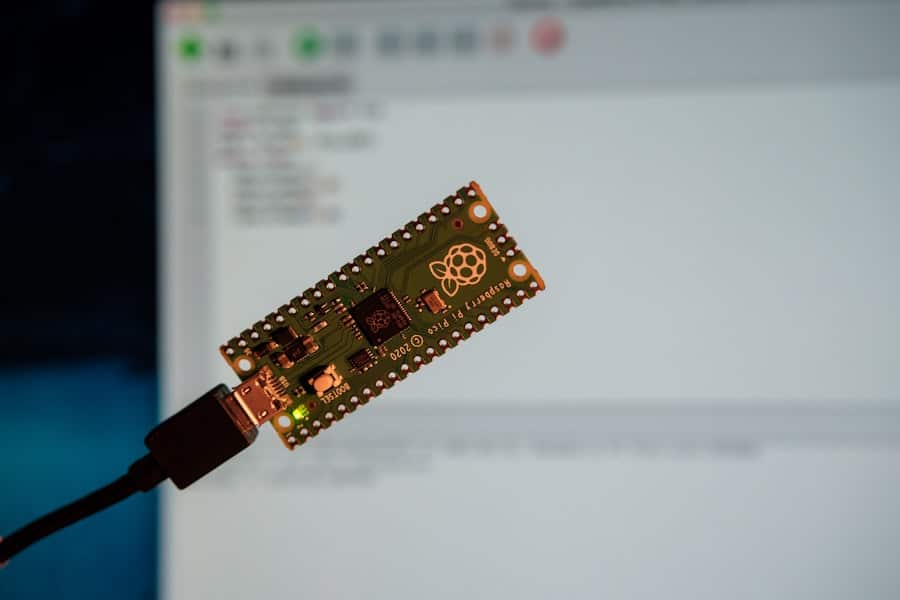The role of a data engineer is pivotal in the modern data-driven landscape, where organizations rely heavily on data to inform decision-making and drive business strategies. Data engineers are responsible for designing, constructing, and maintaining the systems and architecture that allow for the collection, storage, and processing of vast amounts of data. They work closely with data scientists and analysts to ensure that the data pipelines are efficient, reliable, and scalable.
This involves not only the technical aspects of data management but also an understanding of the business needs that drive data usage. In practice, a data engineer’s responsibilities can vary widely depending on the organization and its specific needs. They may be tasked with developing data models, optimizing database performance, or implementing ETL (Extract, Transform, Load) processes to move data from various sources into a centralized repository.
Additionally, they must ensure data quality and integrity, which often involves writing complex queries and scripts to clean and validate data. The role requires a blend of technical expertise and problem-solving skills, as data engineers must navigate challenges related to data architecture, system integration, and performance optimization.
Key Takeaways
- Data engineers play a crucial role in managing and optimizing data pipelines for organizations.
- Technical skills such as SQL, Python, and knowledge of big data tools are essential for a data engineer.
- Proficiency in programming languages like Java, Scala, or Python is crucial for data engineering roles.
- Internships and projects provide valuable hands-on experience for aspiring data engineers.
- Networking and building connections in the industry can lead to job opportunities and career growth for data engineers.
Learning the necessary technical skills
To excel as a data engineer, one must acquire a robust set of technical skills that encompass various aspects of data management and engineering. Proficiency in database technologies is fundamental; this includes both relational databases like MySQL and PostgreSQL, as well as NoSQL databases such as MongoDB and Cassandra. Understanding how to design schemas, write efficient queries, and optimize database performance is crucial for managing large datasets effectively.
Furthermore, familiarity with cloud platforms like AWS, Google Cloud Platform, or Microsoft Azure is increasingly important as many organizations migrate their data infrastructure to the cloud. In addition to database management, knowledge of big data technologies is essential for a data engineer. Tools such as Apache Hadoop and Apache Spark enable the processing of large volumes of data across distributed systems.
Data engineers should also be well-versed in data warehousing solutions like Amazon Redshift or Google BigQuery, which facilitate the storage and analysis of large datasets. Moreover, understanding data pipeline orchestration tools like Apache Airflow or Luigi can significantly enhance a data engineer’s ability to automate workflows and ensure timely data availability for analysis.
Building a strong foundation in programming languages

Programming languages form the backbone of a data engineer’s toolkit, enabling them to manipulate data, automate processes, and build robust systems. Python has emerged as one of the most popular languages in the field due to its versatility and extensive libraries for data manipulation, such as Pandas and NumPy. Python’s readability and ease of use make it an excellent choice for both beginners and experienced engineers alike.
Additionally, it is often used in conjunction with frameworks like Apache Spark for big data processing.
Mastery of SQL allows engineers to extract meaningful insights from structured datasets efficiently.
Beyond basic querying, advanced SQL skills such as window functions, common table expressions (CTEs), and performance tuning are invaluable for optimizing database interactions. Furthermore, languages like Java or Scala may be necessary for working with big data frameworks like Apache Spark, where performance and scalability are paramount.
Gaining experience through internships and projects
Practical experience is invaluable for aspiring data engineers, as it provides an opportunity to apply theoretical knowledge in real-world scenarios. Internships are an excellent way to gain hands-on experience while also building a professional network within the industry. Many companies offer internship programs specifically designed for students or recent graduates interested in data engineering.
These positions often involve working on actual projects that contribute to the organization’s data infrastructure, allowing interns to learn from experienced professionals while developing their skills. In addition to formal internships, personal projects can also serve as a powerful tool for gaining experience. Building a portfolio of projects that demonstrate proficiency in various technologies can significantly enhance a candidate’s attractiveness to potential employers.
For instance, creating a data pipeline that ingests data from public APIs, processes it using Python or Spark, and stores it in a database can showcase both technical skills and problem-solving abilities. Contributing to open-source projects or collaborating with peers on group projects can further enrich one’s experience and provide valuable insights into best practices in the field.
Networking and building connections in the industry
Networking plays a crucial role in career development for aspiring data engineers. Establishing connections with professionals in the field can lead to job opportunities, mentorships, and collaborations on projects. Attending industry conferences, meetups, or workshops focused on data engineering can provide valuable insights into current trends while also facilitating connections with like-minded individuals.
Engaging with online communities through platforms like LinkedIn or specialized forums can also help expand one’s network. Moreover, participating in hackathons or coding competitions can be an effective way to meet other professionals while honing technical skills. These events often attract individuals from diverse backgrounds who share a passion for technology and innovation.
Collaborating on challenges can lead to lasting relationships that may prove beneficial in future job searches or collaborative projects. Building a strong professional network not only opens doors but also provides access to resources and knowledge that can accelerate career growth.
Continuing education and staying updated on industry trends

The field of data engineering is constantly evolving due to advancements in technology and changes in industry practices. As such, continuous education is essential for staying relevant in this dynamic environment. Online courses offered by platforms like Coursera, edX, or Udacity provide opportunities to learn new skills at one’s own pace.
Topics may range from cloud computing to machine learning applications in data engineering, allowing professionals to tailor their learning paths according to their interests and career goals. In addition to formal education, following industry blogs, podcasts, and webinars can help keep professionals informed about emerging trends and best practices. Engaging with thought leaders on social media platforms can also provide insights into innovative approaches being adopted by leading organizations.
By actively seeking out new knowledge and staying abreast of developments in the field, data engineers can position themselves as valuable assets within their organizations.
Showcasing your skills and projects through a portfolio
A well-curated portfolio is an essential tool for demonstrating expertise and attracting potential employers in the competitive field of data engineering. This portfolio should include a variety of projects that highlight different skills and technologies used throughout one’s career journey. For instance, showcasing a project that involves building a real-time data processing pipeline using Apache Kafka can illustrate proficiency in handling streaming data, while another project focused on creating a comprehensive ETL process can demonstrate expertise in batch processing.
In addition to project descriptions, including code snippets or links to GitHub repositories can provide tangible evidence of technical capabilities. Visualizations of project outcomes or dashboards created using tools like Tableau or Power BI can further enhance the portfolio by showcasing the ability to present complex data insights effectively. A strong portfolio not only serves as a testament to one’s skills but also reflects an individual’s passion for data engineering and commitment to continuous improvement.
Finding mentorship and seeking out opportunities for growth
Mentorship can be an invaluable resource for aspiring data engineers seeking guidance on their career paths. Finding a mentor who has experience in the field can provide insights into industry expectations, best practices, and potential career trajectories. Many organizations have formal mentorship programs that pair junior employees with seasoned professionals; however, informal mentorship relationships can also be cultivated through networking events or online communities.
In addition to seeking mentorship, actively pursuing opportunities for growth within one’s current role is essential for career advancement. This may involve taking on challenging projects that push one’s boundaries or volunteering for cross-functional teams that require collaboration with other departments. By demonstrating initiative and a willingness to learn, aspiring data engineers can position themselves for promotions or new opportunities within their organizations.
If you’re interested in building a career in data engineering without a CS degree, you might also find it beneficial to explore tools and software that can enhance your analytical skills. A related article that could be of interest is Best Software for Fault Tree Analysis in 2023. This article provides insights into various software options that can help you develop a structured approach to problem-solving and data analysis, which are crucial skills in the field of data engineering.
FAQs
What is data engineering?
Data engineering is a field within data science that focuses on the practical application of data collection, storage, and processing. Data engineers are responsible for designing and maintaining the infrastructure that allows for the efficient and reliable use of data within an organization.
Do you need a computer science degree to become a data engineer?
While a computer science degree can be beneficial, it is not always necessary to become a data engineer. Many data engineers have backgrounds in fields such as mathematics, statistics, engineering, or other related disciplines.
What skills are important for a career in data engineering?
Important skills for a career in data engineering include proficiency in programming languages such as Python, SQL, and Java, as well as knowledge of database systems, data warehousing, and big data technologies. Additionally, strong problem-solving and analytical skills are crucial for success in this field.
How can someone build a career in data engineering without a CS degree?
To build a career in data engineering without a CS degree, individuals can pursue alternative education options such as online courses, bootcamps, or self-study to gain the necessary technical skills. Networking with professionals in the field and gaining practical experience through internships or personal projects can also help to establish a career in data engineering.

